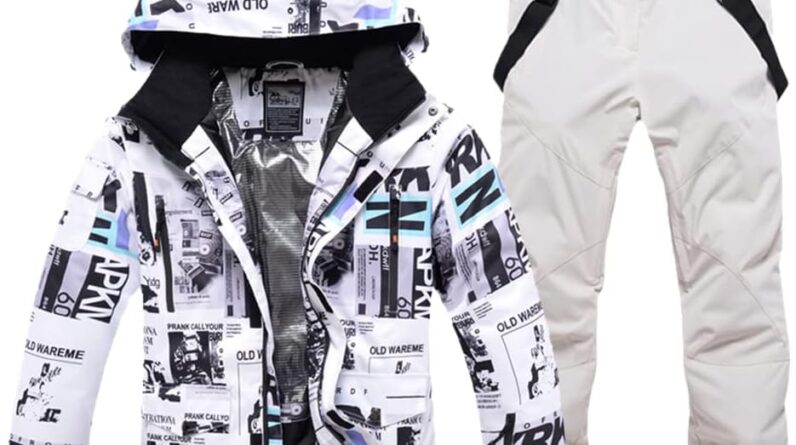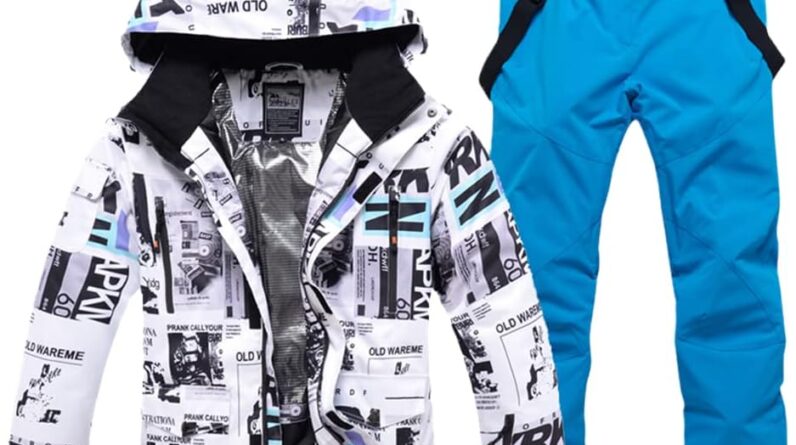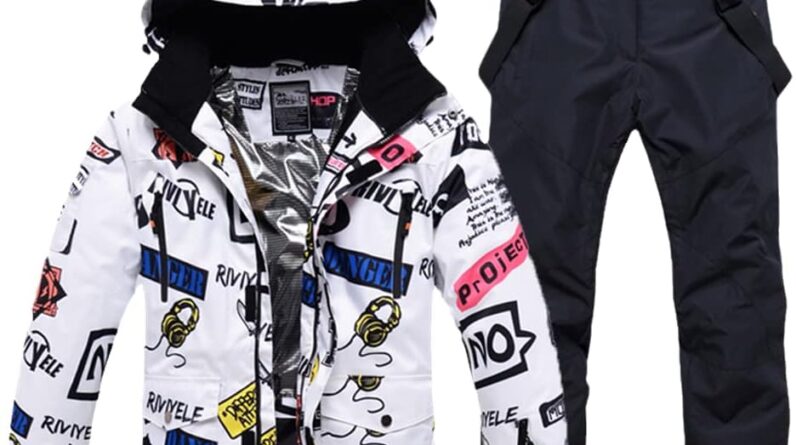
If you’re an avid water sports enthusiast and have been wondering about eco-friendly alternatives for your equipment, look no further! In this article, we will take a closer look at the exciting world of eco-friendly water sports equipment. From surfboards made from recycled materials to paddleboards crafted from sustainable wood, we will explore the innovative designs and materials that are shaping the future of water sports. Whether you’re a seasoned pro or just dipping your toes into the water, there are more environmentally conscious options available than ever before. So grab your wetsuit and let’s dive into the world of eco-friendly water sports equipment!

This image is property of green-travel-blog.com.
1. Introduction to Eco-Friendly Water Sports Equipment
What is eco-friendly water sports equipment?
Eco-friendly water sports equipment refers to products and gears designed with an emphasis on minimizing their environmental impact. These equipment are made from sustainable materials, often biodegradable or recycled, and are produced using sustainable manufacturing processes. By choosing eco-friendly water sports equipment, you can enjoy your favorite water activities while minimizing harm to the environment.
Why is it important to explore eco-friendly options?
Exploring eco-friendly options for water sports equipment is crucial for several reasons. First and foremost, it helps protect the delicate ecosystems of our waterways. Traditional water sports equipment, such as surfboards and wetsuits, are typically made from non-biodegradable materials like fiberglass and neoprene, which can take hundreds of years to decompose. By opting for eco-friendly alternatives, we can reduce the accumulation of waste in our oceans and water bodies.
Secondly, eco-friendly water sports equipment promotes sustainability and conservation. It encourages the use of renewable and recycled materials, reducing the reliance on virgin resources. Additionally, eco-friendly equipment often has a lower carbon footprint as it is produced using more sustainable manufacturing methods, contributing to the overall fight against climate change.
Lastly, supporting eco-friendly water sports equipment brands and manufacturers can drive innovation and inspire others to make more environmentally conscious choices. By choosing these products, you are sending a message to the industry that sustainability matters and that the demand for eco-friendly options is increasing.
2. Eco-Friendly Materials for Water Sports Equipment
Biodegradable materials
Biodegradable materials are those that can naturally decompose and return to the environment without causing long-term harm. They are an excellent choice for water sports equipment as they reduce the risk of pollution and long-term waste accumulation. Some examples of biodegradable materials used in water sports equipment include natural fibers like cork, organic cotton, and hemp.
Recycled materials
Recycled materials are an essential component of eco-friendly water sports equipment. By repurposing materials that would otherwise end up in landfills or incinerators, we can significantly reduce the environmental impact of water sports gear. Recycled materials that are commonly used in the production of water sports equipment include recycled foam, recycled plastic, and reclaimed wood.
Sustainable materials
Sustainable materials refer to resources that can be responsibly sourced, harvested, and replenished without causing long-term environmental damage. These materials play a crucial role in the production of eco-friendly water sports equipment. Sustainable materials used in water sports equipment include bamboo, sustainably harvested wood, and plant-based neoprene.
3. Eco-Friendly Surfboards
Cork surfboards
Cork surfboards are an excellent eco-friendly alternative to traditional fiberglass surfboards. Cork, a natural and renewable material, offers numerous advantages. It is lightweight, buoyant, and provides excellent shock absorption, making it a suitable material for surfboards. Cork is also highly sustainable as it is harvested from the bark of cork oak trees without harming the tree itself.
Bamboo surfboards
Bamboo surfboards have gained popularity among environmentally conscious surfers due to their sustainability and performance. Bamboo is a fast-growing and renewable resource that can be harvested without causing harm to the environment. Bamboo surfboards are known for their durability, lightness, and flexibility, offering surfers a responsive and enjoyable ride.
Recycled foam surfboards
Recycled foam surfboards, often referred to as “recycled blanks,” are made from post-industrial waste foam, primarily sourced from surfboard manufacturing processes. By diverting foam waste from landfills, these surfboards help reduce the environmental impact of the surfboard industry. Recycled foam surfboards provide great performance and are an excellent choice for surfers looking for eco-friendly options.
4. Eco-Friendly Stand-Up Paddleboards (SUPs)
Wooden SUPs
Wooden SUPs offer a beautiful and sustainable alternative to traditional paddleboards. These SUPs are typically handcrafted using sustainably sourced wood like bamboo or reclaimed wood. Wooden SUPs not only look stunning but also provide a smooth and stable ride. They are durable and have a lower carbon footprint compared to SUPs made from non-sustainable materials.
Inflatable SUPs made from eco-friendly materials
Inflatable SUPs made from eco-friendly materials, such as recycled PVC or TPU (thermoplastic polyurethane), are an excellent choice for those seeking portability and convenience without compromising sustainability. These SUPs are lightweight, durable, and can be rolled up for easy transportation. Choosing inflatable SUPs made from eco-friendly materials contributes to reducing plastic waste and promoting circular economy practices.
Recycled plastic SUPs
Recycled plastic SUPs are crafted using plastic waste, typically from ocean or beach cleanups or recycled plastic bottles. By transforming plastic waste into functional paddleboards, these SUPs help tackle the global plastic pollution problem. Recycled plastic SUPs offer great performance and durability while embodying the principles of the circular economy.

This image is property of dailymom.com.
5. Eco-Friendly Wetsuits
Plant-based neoprene
Plant-based neoprene is a sustainable alternative to traditional petroleum-based neoprene, which is commonly used in wetsuit production. Plant-based neoprene utilizes natural rubber extracted from renewable sources like hevea trees instead of relying solely on fossil fuels. These wetsuits perform just as well as their traditional counterparts while reducing the environmental impact associated with neoprene production.
Recycled neoprene
Recycled neoprene wetsuits are made from reclaimed neoprene scraps that would otherwise go to waste. By repurposing and recycling materials, these wetsuits minimize the need for virgin neoprene production and reduce the overall environmental footprint of the wetsuit industry. Recycled neoprene wetsuits offer warmth, flexibility, and the knowledge that you are making a positive impact.
Natural rubber
Wetsuits made from natural rubber are another eco-friendly option that reduces our reliance on non-renewable resources. Natural rubber wetsuits utilize latex derived from rubber trees, providing excellent flexibility and insulation. These wetsuits are biodegradable, making them an environmentally friendly choice for water sports enthusiasts who prioritize sustainability.
6. Eco-Friendly Snorkeling Gear
Snorkels made from recycled plastic
Snorkels made from recycled plastic help minimize plastic waste and contribute to a circular economy. These snorkels are crafted using recycled materials such as reclaimed plastic bottles or post-industrial plastic waste. By repurposing plastic that would otherwise end up in landfills or oceans, these snorkels offer a sustainable alternative for enjoying underwater exploration.
Biodegradable snorkel masks
Biodegradable snorkel masks are designed to break down naturally in the environment over time. These masks are usually made from biodegradable materials such as plant-based plastics or bioplastics that can safely decompose without leaving harmful residues. Choosing biodegradable snorkel masks ensures that you can enjoy snorkeling while minimizing your impact on marine ecosystems.
Sustainable fins
Sustainable snorkeling fins are manufactured using eco-friendly materials and processes. Typically made from recycled plastic or natural rubber, these fins offer excellent performance while reducing environmental harm. Sustainable fins contribute to resource conservation, waste reduction, and the preservation of marine habitats, making them an ideal choice for environmentally conscious snorkelers.

This image is property of dailymom.com.
7. Eco-Friendly Kayaks
Kayaks made from recycled plastic
Kayaks made from recycled plastic provide a sustainable option for water sports enthusiasts. These kayaks are manufactured using reclaimed plastic waste, such as discarded bottles or fishing nets, which are then transformed into durable and functional watercraft. By choosing kayaks made from recycled plastic, you promote the circular economy and help prevent plastic pollution in our waterways.
Sustainable wood kayaks
Sustainable wood kayaks are handcrafted using responsibly sourced wood, often from certified sustainable forests. These kayaks offer a unique and aesthetically pleasing experience while minimizing environmental impact. Wood kayaks are durable, lightweight, and can be passed down through generations, reducing the need for constant replacement and further resource consumption.
Inflatable kayaks made from eco-friendly materials
Inflatable kayaks made from eco-friendly materials, such as recycled PVC or TPU, provide a portable and eco-conscious option for kayaking enthusiasts. These kayaks offer the convenience of easy transport and storage while utilizing recycled materials that would otherwise contribute to landfill waste. Inflatable kayaks made from eco-friendly materials combine sustainability and practicality, making them an excellent choice for eco-minded adventurers.
8. Eco-Friendly Canoes
Canoe frames made from sustainable materials
Canoes with frames made from sustainable materials typically utilize responsibly sourced wood or other eco-friendly alternatives like bamboo. These canoes showcase the beauty of natural materials while promoting sustainability. Canoes with sustainable frames offer durability and strength without depleting precious resources or contributing to deforestation.
Biodegradable canoes
Biodegradable canoes are designed to naturally decompose over time without causing harm to the environment. These canoes are typically made from biodegradable materials such as plant-based plastics or natural fibers. Choosing biodegradable canoes ensures that at the end of their lifespan, they will return to the earth, leaving behind minimal ecological impact.
Recycled plastic canoes
Recycled plastic canoes are made from reclaimed plastic waste, providing a sustainable alternative to traditional canoes. These canoes not only reduce plastic waste but also showcase the durability and versatility of recycled materials. Recycled plastic canoes offer a functional and environmentally friendly option for paddlers who want to minimize their impact on the planet.

This image is property of dailymom.com.
9. Eco-Friendly Diving Equipment
Recycled plastic diving masks
Recycled plastic diving masks are crafted from reclaimed plastic waste, often sourced from ocean cleanups. By repurposing plastic that would otherwise pollute our oceans, these masks help reduce plastic waste and promote sustainability in the diving industry. Recycled plastic diving masks offer clarity and durability while taking a step towards protecting our marine ecosystems.
Sustainable diving fins
Sustainable diving fins are made from eco-friendly materials such as recycled plastics or natural rubber. These fins provide optimal performance while minimizing harm to the environment. By choosing sustainable diving fins, divers can enjoy their underwater adventures knowing that they are supporting sustainable practices and helping preserve marine biodiversity.
Biodegradable weight belts
Biodegradable weight belts are designed to break down naturally over time without leaving harmful residues in the environment. These belts are typically made from biodegradable materials such as natural fibers or bioplastics. By opting for biodegradable weight belts, divers can ensure that their equipment does not contribute to long-term pollution in our oceans and waterways.
10. Eco-Friendly Fishing Gear
Biodegradable fishing nets
Biodegradable fishing nets are designed to naturally decompose in the environment, reducing the risk of entangling marine life. These nets are typically made from biodegradable materials such as natural fibers or bioplastics. By using biodegradable fishing nets, anglers can enjoy their hobby while reducing the negative impact on marine ecosystems.
Sustainable fishing rods
Sustainable fishing rods are manufactured using eco-friendly materials and practices. These rods often utilize sustainably sourced bamboo or recycled graphite, reducing the reliance on non-renewable resources. Sustainable fishing rods help promote responsible fishing practices and conservation, ensuring that future generations can continue to enjoy the joy of angling.
Recycled plastic tackle boxes
Tackle boxes made from recycled plastic offer a sustainable storage solution for fishing gear. These boxes are typically crafted from recycled plastic waste, reducing the need for virgin plastic production. By choosing recycled plastic tackle boxes, anglers can actively contribute to reducing plastic waste and promoting a circular economy.
In conclusion, eco-friendly water sports equipment provides a range of options for water sports enthusiasts who want to enjoy their activities while minimizing their environmental impact. From surfboards and stand-up paddleboards to wetsuits and snorkeling gear, there are numerous sustainable alternatives available. By choosing eco-friendly materials, such as biodegradable, recycled, and sustainable options, you can make a positive difference in protecting our oceans, waterways, and natural ecosystems. So, go ahead and explore the world of eco-friendly water sports equipment and discover how you can enjoy your favorite activities while being a responsible steward of the environment.

This image is property of dailymom.com.






